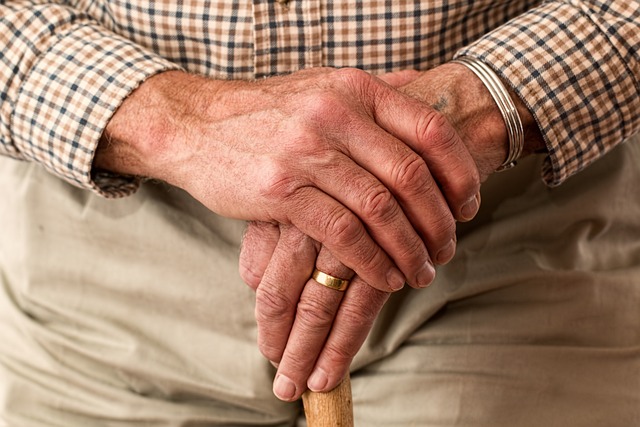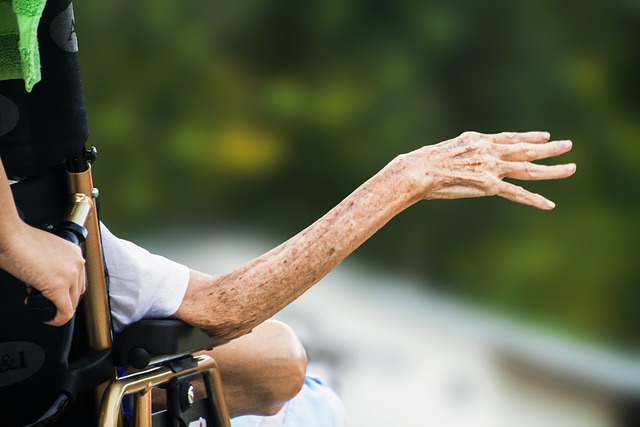Elderly companion services are crucial for supporting family caregivers by providing assistance with daily living activities, thereby reducing the burden on families. These services offer tailored support that enhances the mental acuity and emotional well-being of seniors, ensuring they adhere to medication schedules, engage in mentally stimulating activities, and enjoy meaningful companionship. This helps address issues of isolation and loneliness often experienced by older adults. By complementing existing care, these services enable caregivers to manage personal responsibilities without compromising the quality of care for their elderly relatives. They also feature trained professionals who can recognize early signs of health declines, allowing for prompt interventions that can prevent emergencies and alleviate family stress. The integration of these services into a care plan significantly reduces strain on families, safeguarding the well-being of elders and maintaining familial relationships. These companion services are instrumental in promoting independence and improving quality of life for seniors while providing much-needed respite for families, ensuring that loved ones receive compassionate care and allowing family members to attend to personal needs with peace of mind. Elderly Companion Services are thus an integral component of eldercare, offering a harmonious balance between the care needs of seniors and family responsibilities.
navigating the complexities of caregiving can be a demanding journey for families. Elderly companion services emerge as a vital resource, offering tailored support to seniors while alleviating the stress on caregivers. This article delves into the multifaceted benefits of these services, providing insights into their role in family caregiving relief and guiding readers on how to effectively access and utilize them for enduring assistance.
- Understanding the Role of Elderly Companion Services in Family Caregiving Relief
- The Benefits of Professional Elderly Companion Services for Seniors and Families Alike
- How to Access and Utilize Elderly Companion Services for Sustained Caregiving Support
Understanding the Role of Elderly Companion Services in Family Caregiving Relief

Elderly companion services play a pivotal role in the realm of family caregiving relief by offering targeted support for seniors who require assistance with daily living activities. These services are designed to complement, not replace, the care provided by families, thereby alleviating some of the stress and responsibilities shouldered by caregivers. Professional companions can assist with medication reminders, provide engaging activities to maintain cognitive function, and offer companionship to reduce feelings of isolation and loneliness, which are common among the elderly. This allows family members to allocate their time more effectively, balancing personal responsibilities with their caregiving duties without compromising on the quality of care for their loved ones. Additionally, these services often employ trained professionals who can identify potential health issues early, facilitating timely interventions that can prevent crises and further strain on families. By integrating elderly companion services into a care plan, families can experience significant relief from the demands of caregiving, ensuring both the well-being of their elder members and the preservation of familial relationships.
The Benefits of Professional Elderly Companion Services for Seniors and Families Alike

Elderly companion services offer a multitude of advantages for seniors, enhancing their quality of life while providing respite for families. These services are designed to provide social interaction and engagement for older adults, which is crucial for maintaining mental acuity and emotional well-being. Companions can assist with daily activities, offering a supportive presence that allows seniors to remain in the comfort of their own homes. This not only fosters a sense of independence but also alleviates the stress and burden often felt by family caregivers. With professional companions, seniors benefit from tailored activities and company, reducing feelings of isolation and loneliness that can accompany aging. For families, the peace of mind that comes from knowing their loved ones are in capable hands is immeasurable. It allows them to manage personal responsibilities or simply take a much-needed break without compromising the care their elder receives. The role of these companions is to enrich the lives of seniors through meaningful engagement and support, thereby creating a harmonious balance between caregiving duties and family life.
How to Access and Utilize Elderly Companion Services for Sustained Caregiving Support

When a family member requires ongoing care and support due to aging or health-related challenges, accessing elderly companion services can be a game-changer. These services are designed to provide consistent companionship and assistance tailored to the individual’s needs, thereby offering respite for primary caregivers and enhancing the quality of life for the elder. To initiate these services, it’s advisable to start with a comprehensive assessment of the elderly person’s requirements, which can be conducted by a healthcare professional or a social services agency. This evaluation helps determine the level of support needed and ensures that the companion service selected is well-aligned with the individual’s specific needs.
Once the assessment is complete, families can explore various options for elderly companion services. These range from in-home care to adult daycare centers, each offering different levels of engagement and oversight. It’s crucial to research and select a reputable provider that maintains high standards of care and has well-trained staff. Many regions have vetted agencies specializing in elder companionship, which often include services like medication management, light housekeeping, meal preparation, and social interaction, all aimed at maintaining the dignity and independence of the senior while providing essential support to their family caregivers. Utilizing these services not only alleviates the strain on families but also ensures that elderly loved ones receive the consistent, compassionate care they need to thrive.
In conclusion, eldercare presents a multifaceted challenge that is increasingly being met with the provision of elderly companion services. These services offer tangible benefits for seniors, including companionship, tailored support, and an improved quality of life, while also providing vital respite for caregiving families. By understanding the role these services play in family caregiving relief, recognizing their benefits, and knowing how to access them, families can sustainably manage the demands of eldercare. Elderly companion services are not just a practical solution; they are a compassionate response to the needs of aging individuals and their loved ones. Embracing these services allows families to continue providing care without sacrificing their well-being, ensuring that both seniors and their families can thrive with the support available through these programs.
